From coconut-oil cheese to powdered egg mix made of chickpea, there are plenty of animal-free alternatives out there to enjoy.
But they all face the same problem. Because they lack the natural protein content of their animal counterparts, they have to be supplemented with protein powders made from pea, soy, and other sources.
That gives them a strange aftertaste or a weird texture, and often results in consumers turning their noses up at plant-based alternatives.

An Israeli startup has created a “ghost” protein made from microalgae that solves both these problems. It is virtually tasteless and it has no effect on the food texture.
It’s a white powder derived from chlorella, which is widely used as a health supplement but has a strong and unpleasant seaweed flavor.
Researchers at Brevel made two breakthroughs. They perfected a method of growing a high-protein version of chlorella. And they developed a secret and patented way to remove the flavor.
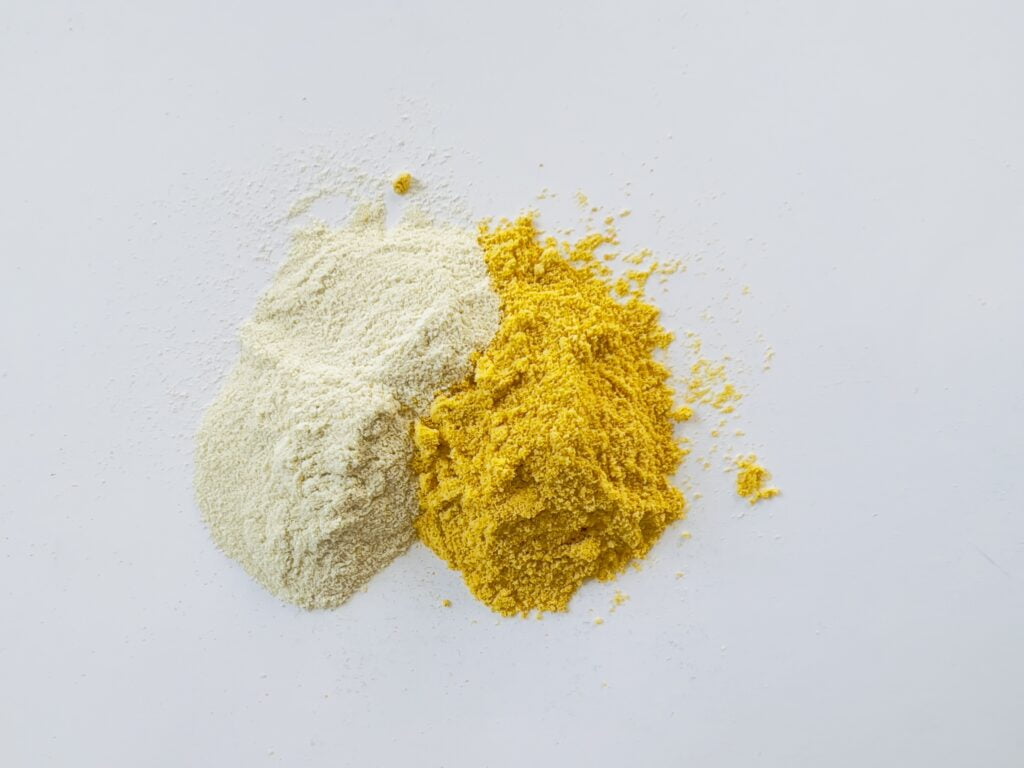
The microalgae protein they produce will first be used in dairy-free cheeses made by Vgarden, a developer of plant-based foods, and should hit the shelves at the end of this year.
Brevel is also building a facility in Kibbutz Yotvata, southern Israel. It will be able to produce 900,000 liters a year of the microalgae, to be processed into a powder for vegan dairy, egg, fish, and seafood products.
Chlorella, a type of freshwater algae, has many health benefits including vitamins, minerals, fats, and fiber, but plant-based food makers have so far avoided using it, because of its strong flavor.
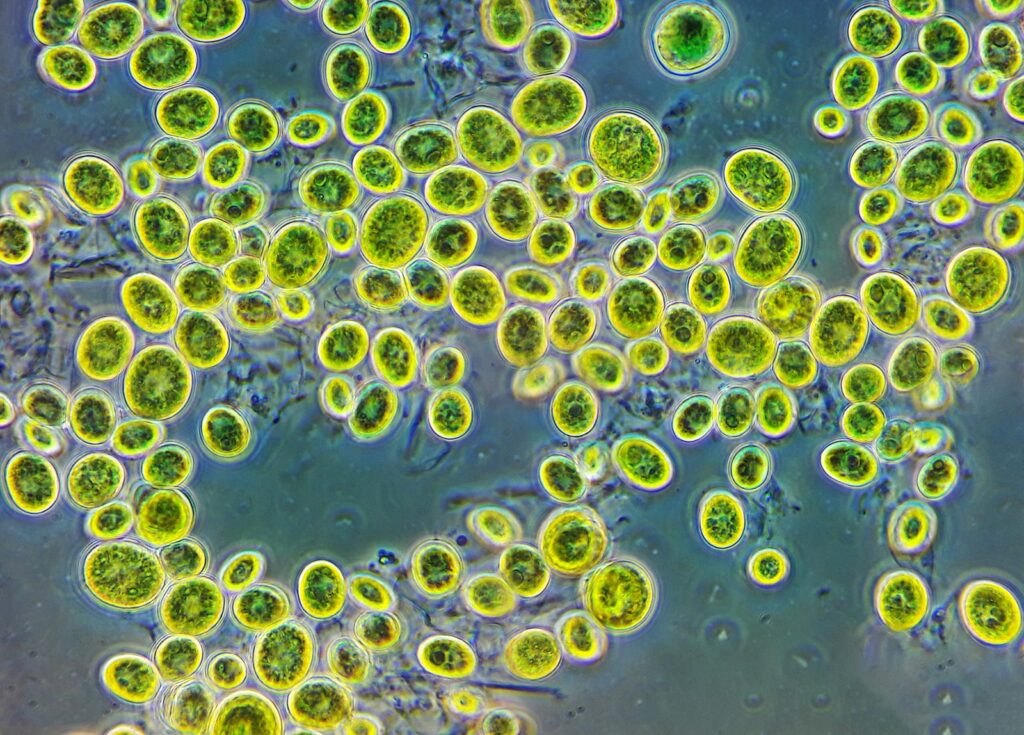
Brevel grows it in specially-developed stainless steel fermenters, with hundreds of LED-filled brass tubes to illuminate the inside of the tank.
Microalgae like chlorella is grown in two ways, but each method has its downsides. When grown in outdoor pond systems, the microalgae is able to gain its multiple health benefits because of its exposure to the sun, but it requires a lot of space and is more costly.
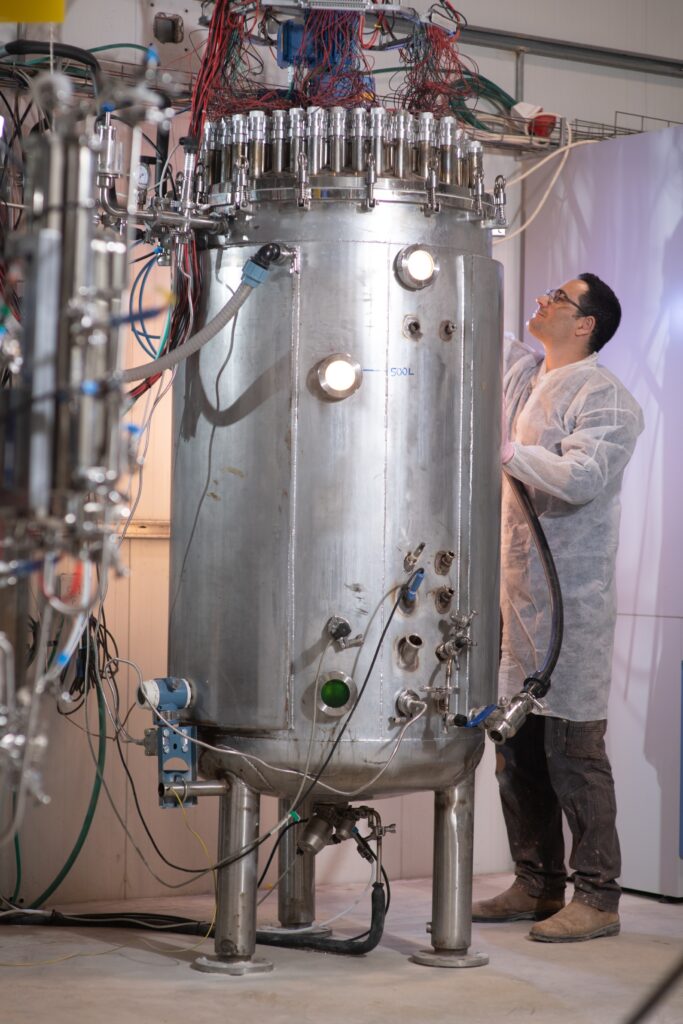
And when cultivated in indoor, stainless steel fermenters, it grows faster and has higher yields, but because it has no access to the sun, it doesn’t develop its high protein content or other nutritional values.
Brevel’s process is the best of both worlds: it quickly grows its chlorella strains in indoor fermenters, and ensures it develops its many health benefits through the use of LED lights.
And by fine tuning the conditions it grows in and the nutrients they provide, it makes it easier to extract the protein and get rid of the remaining, ‘seaweed’-like flavor.
“It sounds simple: just take a fermenter and stick in some lights,” says Yonatan Golan, CEO.
“But that’s like saying ‘just take a car that runs on diesel, stick in some rechargeable batteries, and you’ll get a Tesla’. In reality, it took us two years to do this efficiently.
Until now, microalgae has been more costly to produce than soy, peas or other types of alternative protein, but Brevel’s breakthrough changes that.
“For the first time, we’re actually able to get to cost levels that are relevant for the food industry, and relevant for large food manufacturers that want to replace existing protein sources with a new source that is also sustainable and tasty.”
Sign up for our free weekly newsletter
Subscribe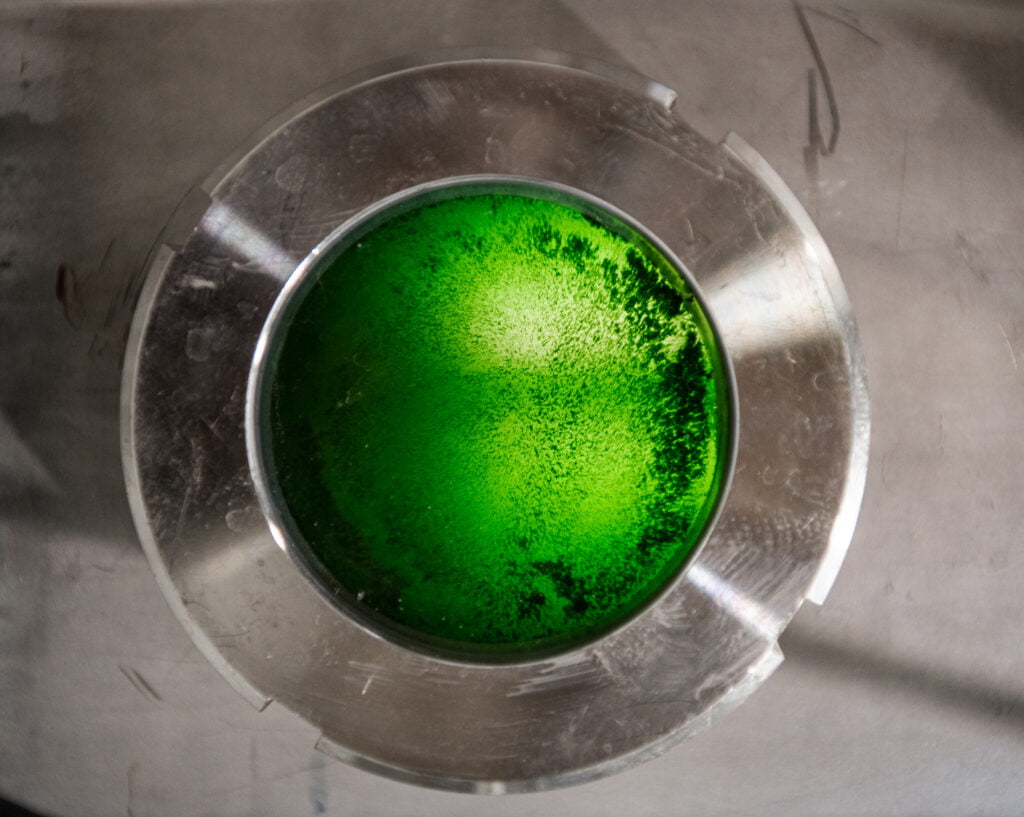
Microalgae fermenters are huge tanks that are sealed to remain sterile and prevent the growth of bacteria and yeast, with only a handful of openings to measure parameters like oxygen levels and pressure.
In order to introduce light, the tank, which basically contains dense green water that is difficult to fully penetrate, needs hundreds of openings so it can reach every part of it – which means there are small crevices where spores can hide.
“If we do not have such a large concentration of light elements inside, it’s basically growing in the dark,” he says.
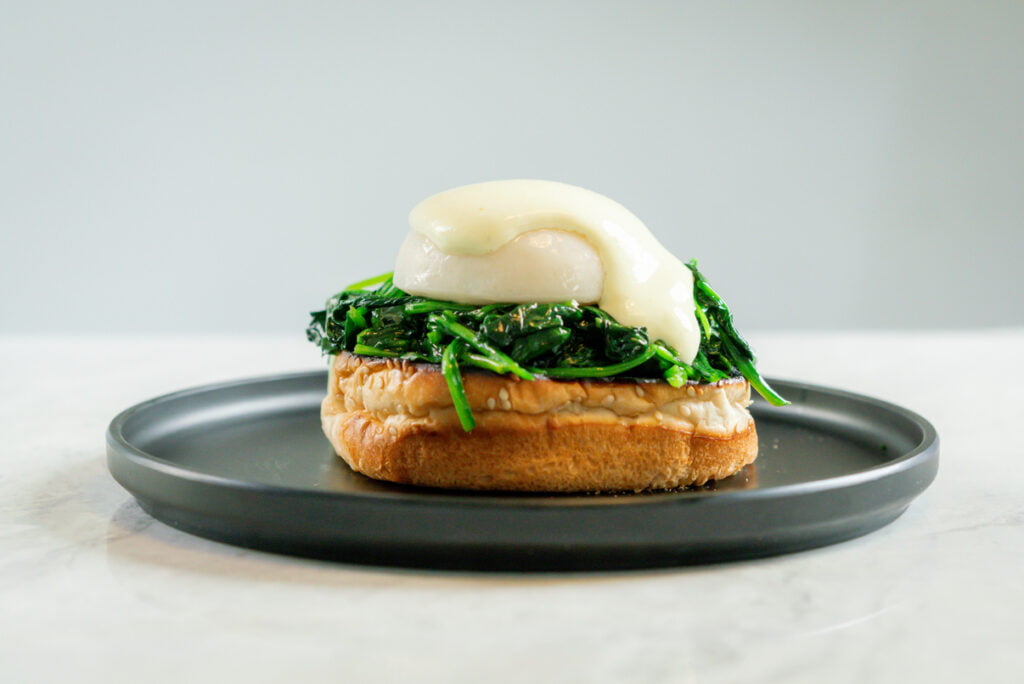
And in the jungle of tubes and openings, it is impossible to clean it effectively without massive human intervention. Especially when some tanks can contain up to 5,000 liters.
Brevel’s patented stainless steel tank includes hundreds of brass tubes, each containing an LED, so that the whole volume is always illuminated. And it’s equipped with hardware that continuously sterilizes it, preventing the growth of bacteria.
“We had to basically design and invent specific valves and other methods and processes that enabled this very efficient cleaning, sterilization, and sealing the internal environment from the outside.”
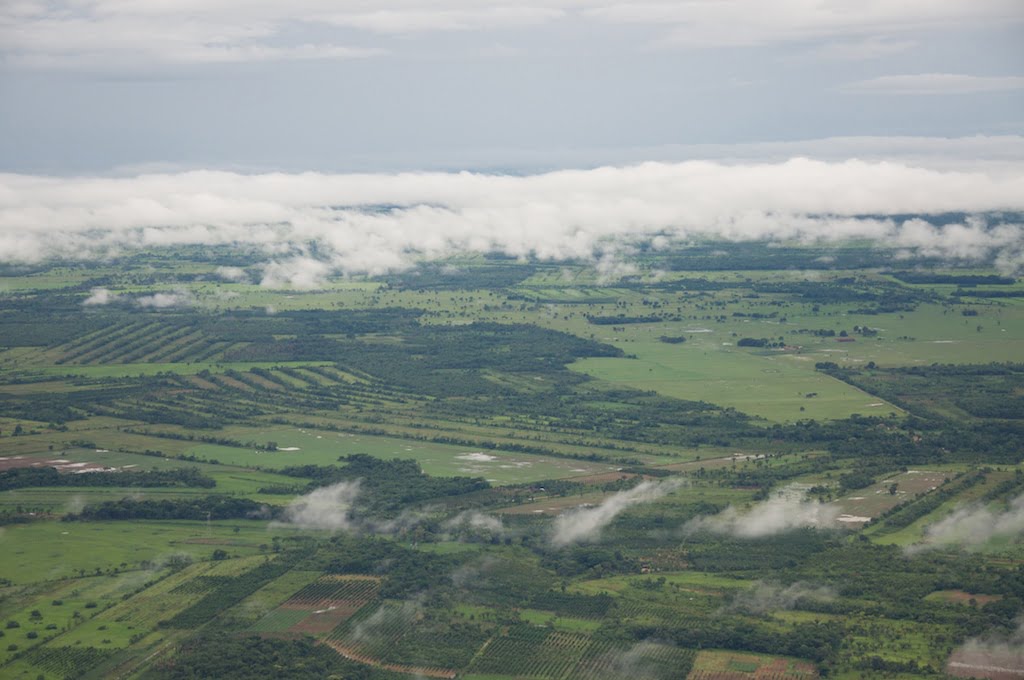
It’s a reliable and compact way of producing protein – as opposed to soy and pea farmers, who don’t know what yields they’ll have in the coming years due to the constantly changing climate, or the amount of protein their crops will have.
“There’s no variability between seasons, it’s a very stable and reliable production,” he says.
Golan believes that microalgae protein can completely replace the use of soy or pea protein in plant-based products.
You won’t be seeing “chlorella milk” on your grocery store shelf any time soon, but rather, you’ll be able to turn over the bottle and see a mention of ‘microalgae’ in the ingredient list.
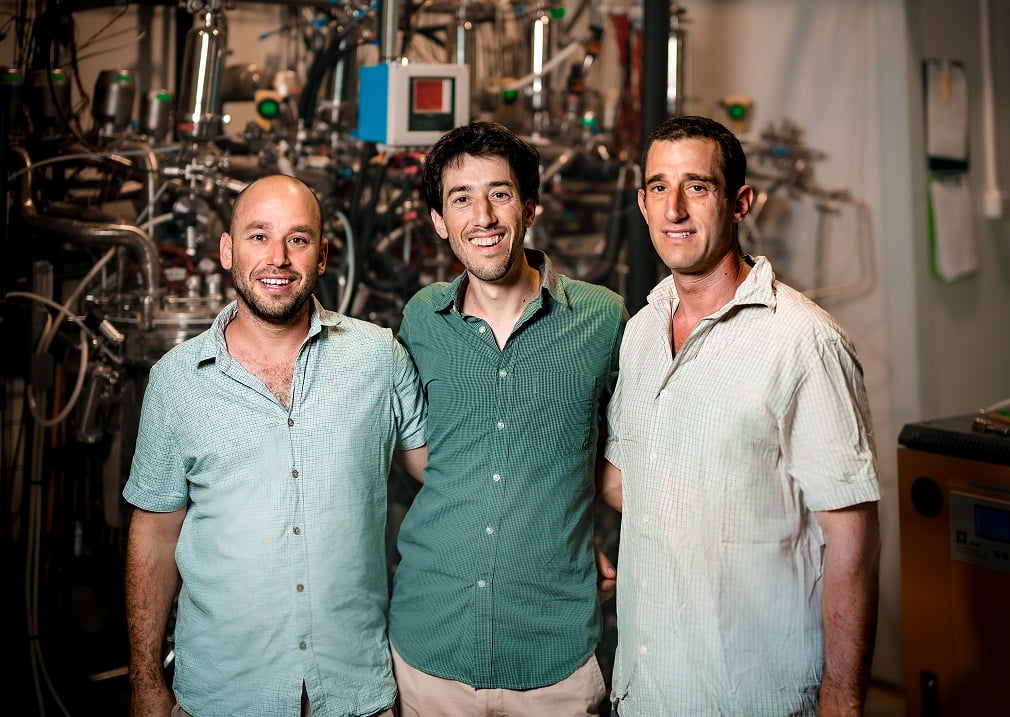
“Microalgae is a major source of protein, and we expect it to be among the first if not the number one choice of protein for the food industry.”
Soy and pea protein have strong flavors. For brands that make plant-based burgers and meat, like Impossible Foods or Beyond Meat, it’s not an issue, because they can mask the flavors with plenty of seasonings and masking agents.
But in plant-based dairy products, this cannot be done. The more soy or pea protein that is added to oat milk, for example, the more dominant the bean-like flavor will be. That’s not the case with Brevel.
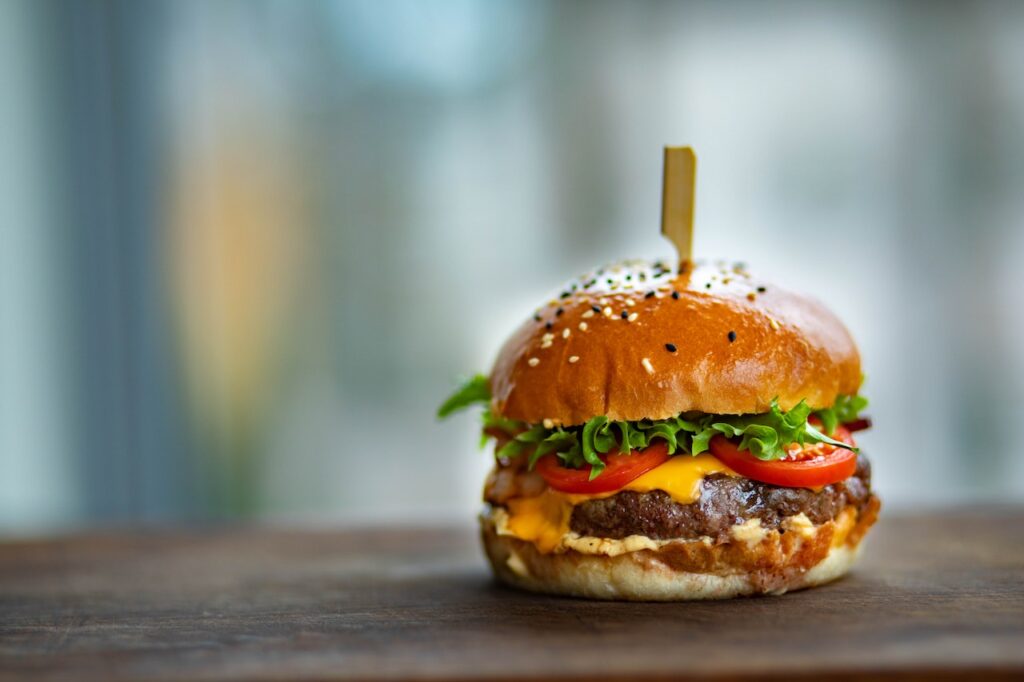
“Even soy milk itself is masked with sugar and vanilla extract,” explains Golan. “It doesn’t taste like soy.”
In the future, the startup will use its microalgae to give different textures and gelation properties, mostly for seafood and fish alternatives.
“Though I am sure that for some applications, other alternative proteins will work better. Maybe fungi would work better for plant-based beef, for example.”
Related posts

Resilient And Nutritious New Plant-Based Milk Aims To Make A Splash

Chocolate From Cultivated Cocoa Comes Without Environmental Toll

Plastic Fantastic: Startup Takes PVC Back To Its Crude Oil Roots


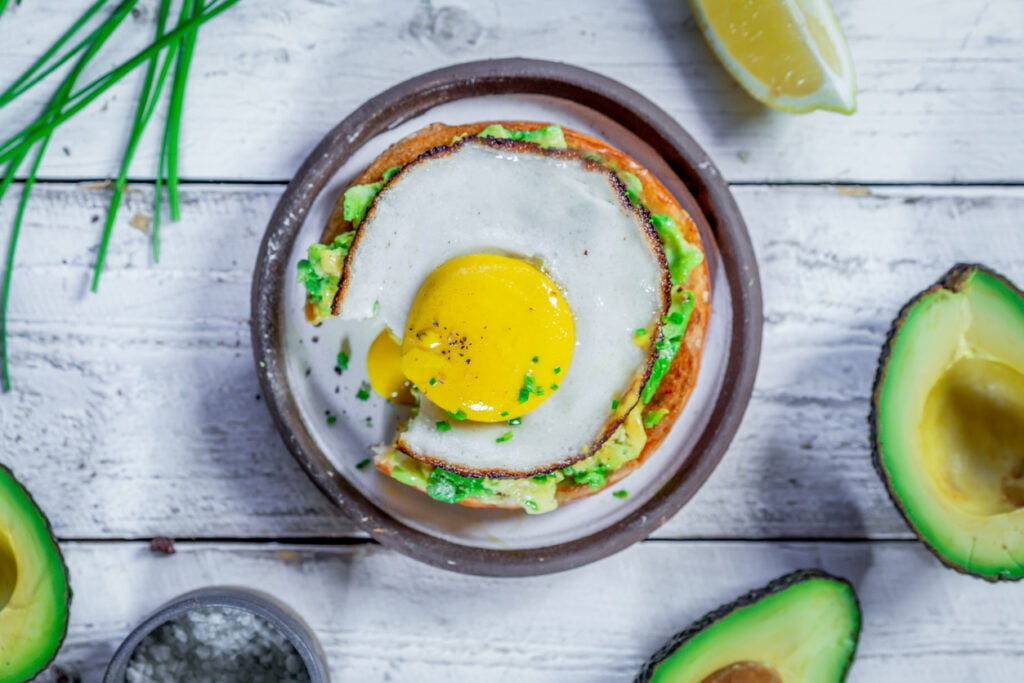

Facebook comments